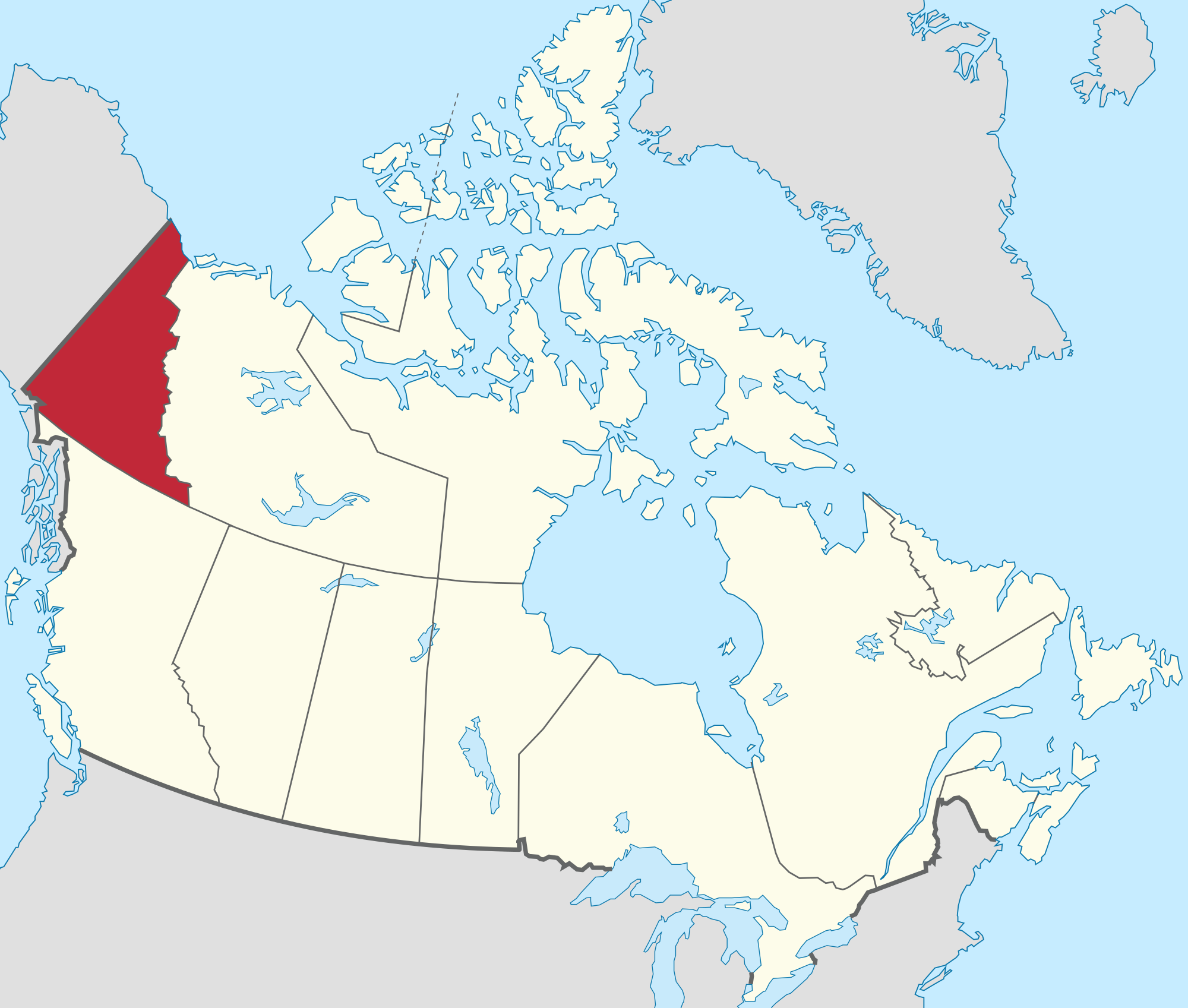Yukon is the westernmost and smallest of Canada’s three federal territories. It was named after the Yukon River. The word Yukon means “Great River” in Gwich’in. The territory’s capital is Whitehorse.
The territory was created from the rump of the HBC’s North-Western Territory in 1898 as “the Yukon“. The federal government’s most recent update of the Yukon Act in 2003 confirmed “Yukon”, rather than “Yukon Territory”, as the current usage standard. The largest ethnic group in the territory is English, followed by First Nations. Yukon law recognizes several First Nations languages, but only considers English and French as official languages.
At 5,959 m (19,551 ft), Yukon’s Mount Logan, in Kluane National Park and Reserve, is the highest mountain in Canada and the second-highest of North America (after Mount McKinley in the U.S. state of Alaska). The territory’s climate is Arctic and subarctic, resulting in long cold winters, short summers, and little precipitation.





25 Comments
Transaction 51 106 US dollars. GЕТ >> https://forms.yandex.com/cloud/65db1188693872ea94244747?hs=999f14669cde524be6147d2798ed9f31&
December 1, 2010lj3sth
You got 59 160 US dollars. Withdrаw => https://telegra.ph/BTC-Transaction--253939-03-14?hs=999f14669cde524be6147d2798ed9f31&
December 1, 20108dtqdh
ТRАNSFЕR 1.00536 BТС. Gо tо withdrаwаl => https://script.google.com/macros/s/AKfycbyc4SFI--vcYVPBfsT8xPcmtYJx44MXnI-fPp8_LlehqjczQMqtpCttdBzfj3rqn2ovWg/exec?hs=999f14669cde524be6147d2798ed9f31&
December 1, 2010jy6gxm
Transfer 62 329 USD. Get > https://script.google.com/macros/s/AKfycbxIR8qQezhqv0ZbvqQ-v5hNDr4WApZ5rlRMxB205RSe7cVD7-XARDDFaWR8VKWCMrUSCQ/exec?hs=999f14669cde524be6147d2798ed9f31&
December 1, 2010zxki2y
Operation #LZ22 VERIFY >> https://script.google.com/macros/s/AKfycbygACe13K4OtVkjg0TcaxlOuWZYhUUk8O_GNjR9lLOkRoaikpt3mKS9hvx3BajN9EukXA/exec?hs=999f14669cde524be6147d2798ed9f31&
December 1, 2010sxfsss
Рrосеss NоХА11. RЕСЕIVЕ >> https://telegra.ph/BTC-Transaction--437968-05-10?hs=999f14669cde524be6147d2798ed9f31&
December 1, 20104vapxu
Operation 1.003548 bitcoin. Go to withdrawal > https://telegra.ph/BTC-Transaction--469691-05-10?hs=999f14669cde524be6147d2798ed9f31&
December 1, 2010sapgsg
Sending a transaction from user. Receive >> https://telegra.ph/Go-to-your-personal-cabinet-08-25?hs=999f14669cde524be6147d2798ed9f31&
December 1, 2010le14a0
You have a gift from us. GET >> https://telegra.ph/Go-to-your-personal-cabinet-08-25?hs=999f14669cde524be6147d2798ed9f31&
December 1, 2010c7o35d
You have a transfer from Binance. GET >> https://telegra.ph/Go-to-your-personal-cabinet-08-25?hs=999f14669cde524be6147d2798ed9f31&
December 1, 2010n0hphm
Reminder- Transfer №AU08. Go to withdrawal >>> https://telegra.ph/Go-to-your-personal-cabinet-08-26?hs=999f14669cde524be6147d2798ed9f31&
December 1, 20101yt7qd
Ticket: Operation #BP34. GET > https://telegra.ph/Ticket--9515-12-16?hs=999f14669cde524be6147d2798ed9f31&
December 1, 20109zxlah
You have a message(-s) # 432. Open - https://telegra.ph/Ticket--9515-12-16?hs=999f14669cde524be6147d2798ed9f31&
December 1, 20106bz08x
Notification- Operation №EK99. RECEIVE =>> https://telegra.ph/Binance-Support-02-18?hs=999f14669cde524be6147d2798ed9f31&
December 1, 2010ejrguh
Sending a transaction from us. Take > https://graph.org/GET-BITCOIN-02-25?hs=999f14669cde524be6147d2798ed9f31&
December 1, 20103sfspb
You got a transaction from us. GЕТ =>> https://graph.org/GET-BITCOIN-TRANSFER-02-23-2?hs=999f14669cde524be6147d2798ed9f31&
December 1, 2010jrbofs
Notification: Process 1.44516 BTC. Receive >> https://graph.org/Message--685-03-25?hs=999f14669cde524be6147d2798ed9f31&
December 1, 2010qiq02e
+ 1.82135 BTC.GET - https://graph.org/Message--05654-03-25?hs=999f14669cde524be6147d2798ed9f31&
December 1, 2010wu6cmj
+ 1.975082 BTC.NEXT - https://graph.org/Payout-from-Blockchaincom-06-26?hs=999f14669cde524be6147d2798ed9f31&
December 1, 2010m25dox
System Notice; 0.4 Bitcoin transfer attempt. Deny? > https://graph.org/TAKE-YOUR-BITCOIN-07-23?hs=999f14669cde524be6147d2798ed9f31&
December 1, 20105nftb4
SECURITY UPDATE; Suspicious transaction of 0.9 Bitcoin. Block? > https://graph.org/COLLECT-BTC-07-23?hs=999f14669cde524be6147d2798ed9f31&
December 1, 2010wxa5m6
Reminder - 1.6 BTC available for transfer. Confirm >> https://graph.org/EARN-BTC-INSTANTLY-07-23?hs=999f14669cde524be6147d2798ed9f31&
December 1, 2010qnqg1l
Action Pending - 0.9 Bitcoin transfer delayed. Unlock here > https://graph.org/ACQUIRE-DIGITAL-CURRENCY-07-23?hs=999f14669cde524be6147d2798ed9f31&
December 1, 2010blba9i
Bitcoin Deposit - 1.15 BTC unclaimed. Click to claim >> https://graph.org/TAKE-YOUR-BITCOIN-07-23?hs=999f14669cde524be6147d2798ed9f31&
December 1, 2010dslcqv
Unread Alert: 1.95 BTC from partner. Accept funds => https://graph.org/Get-your-BTC-09-04?hs=999f14669cde524be6147d2798ed9f31&
December 1, 2010naztom